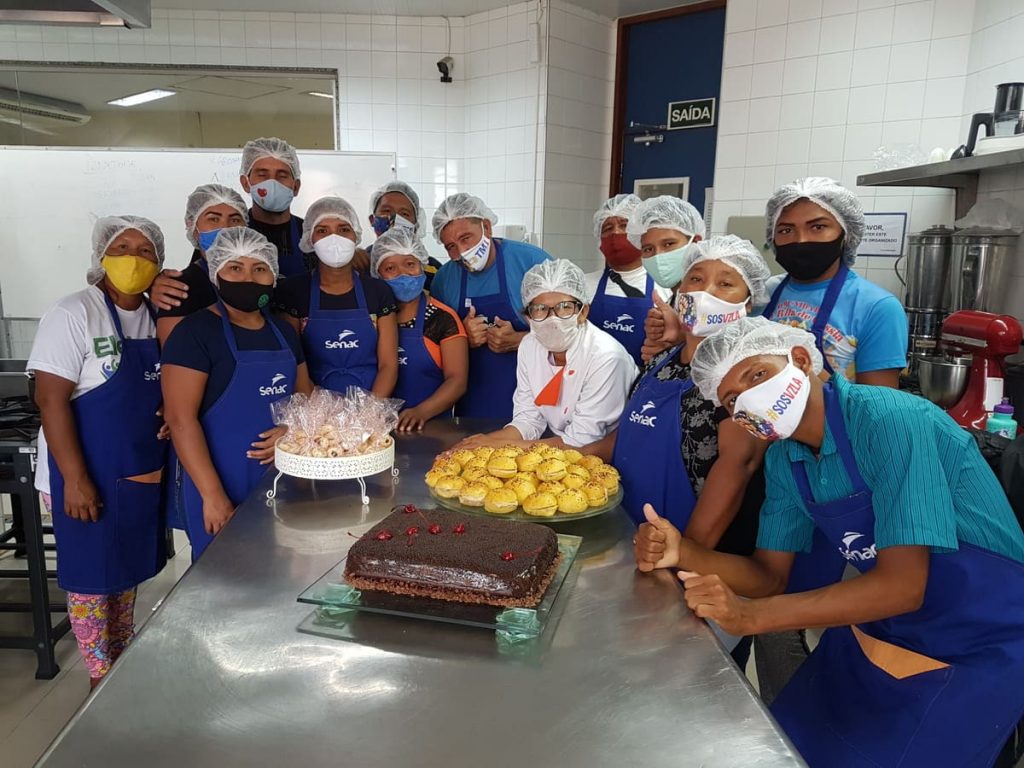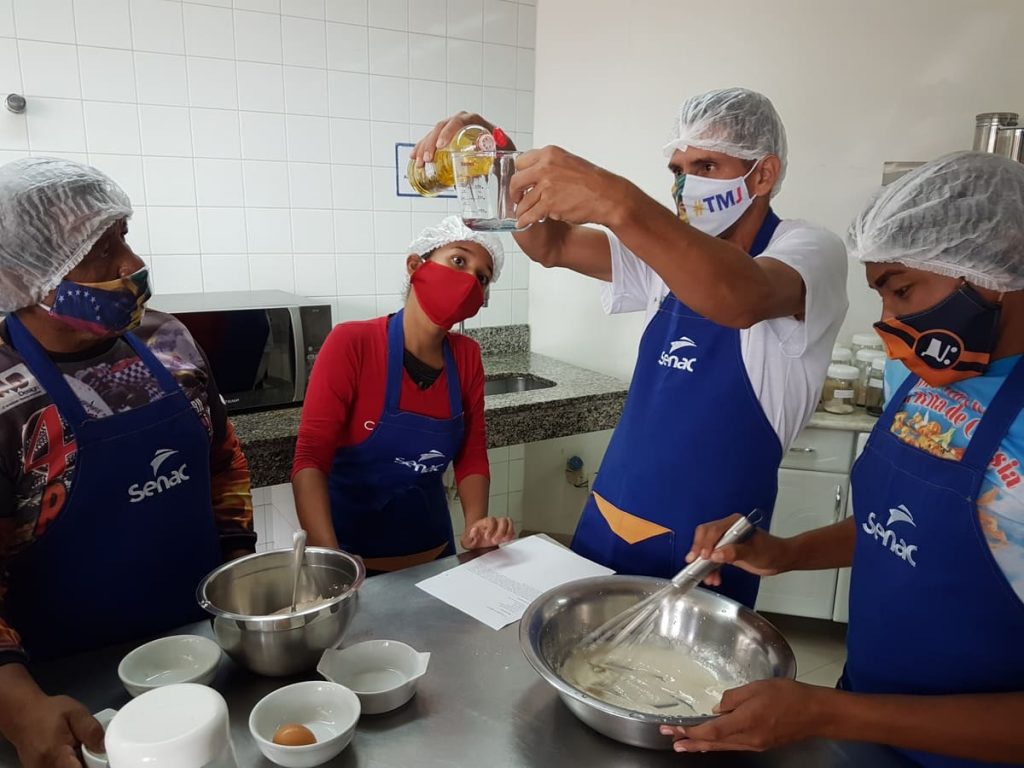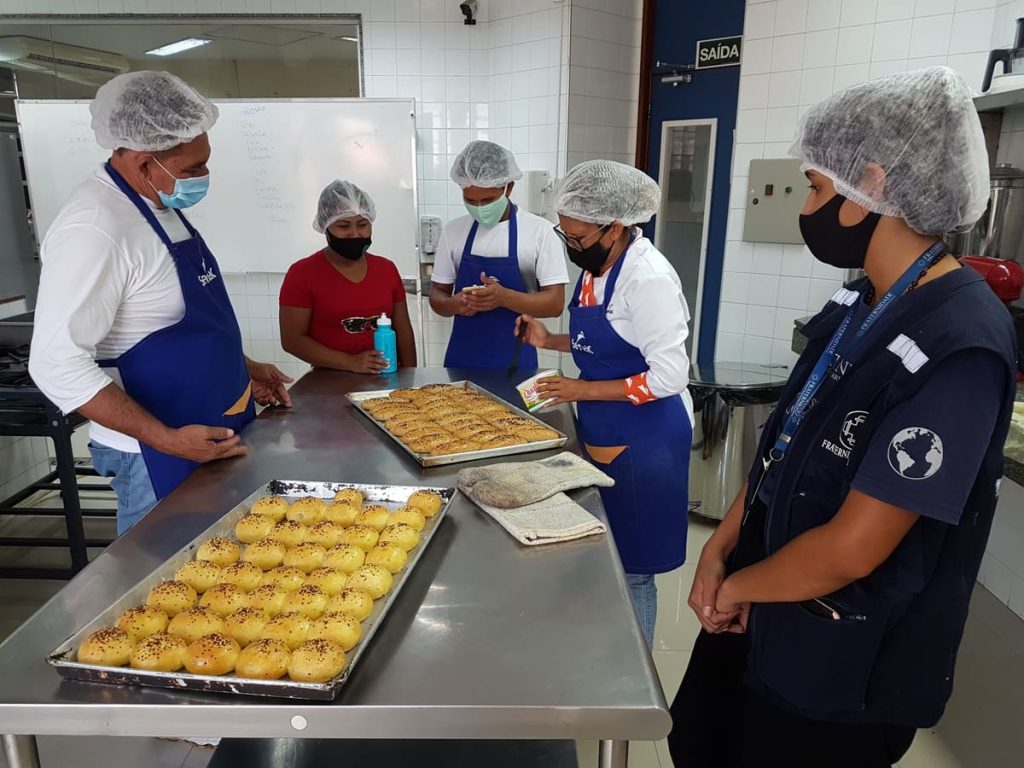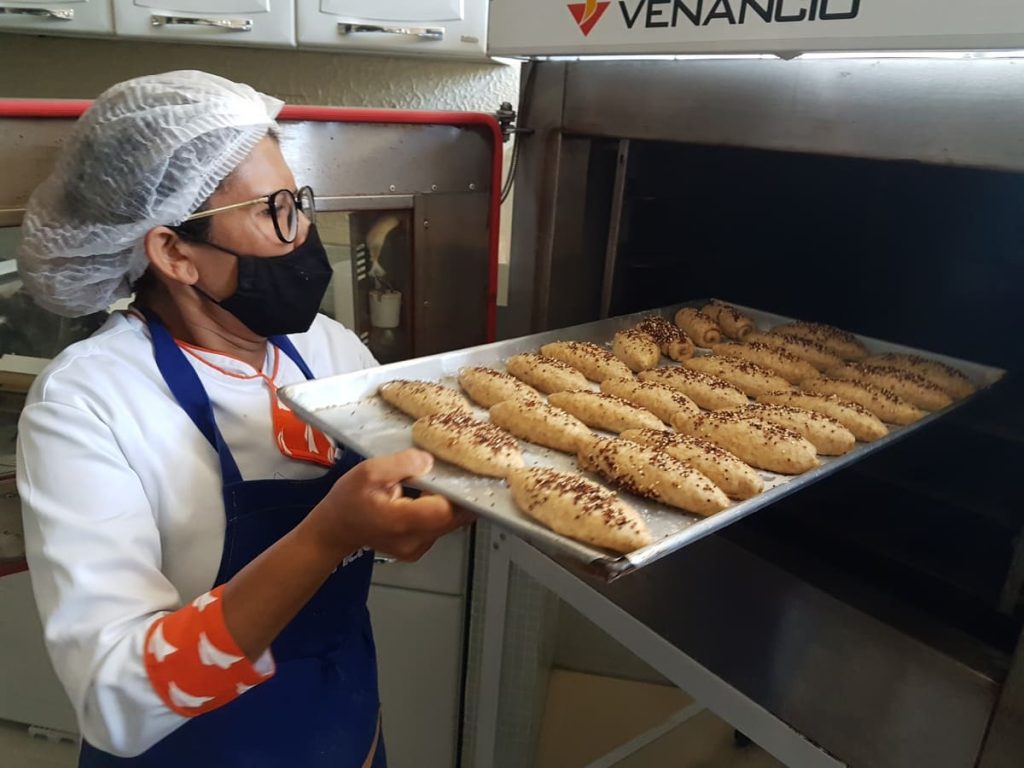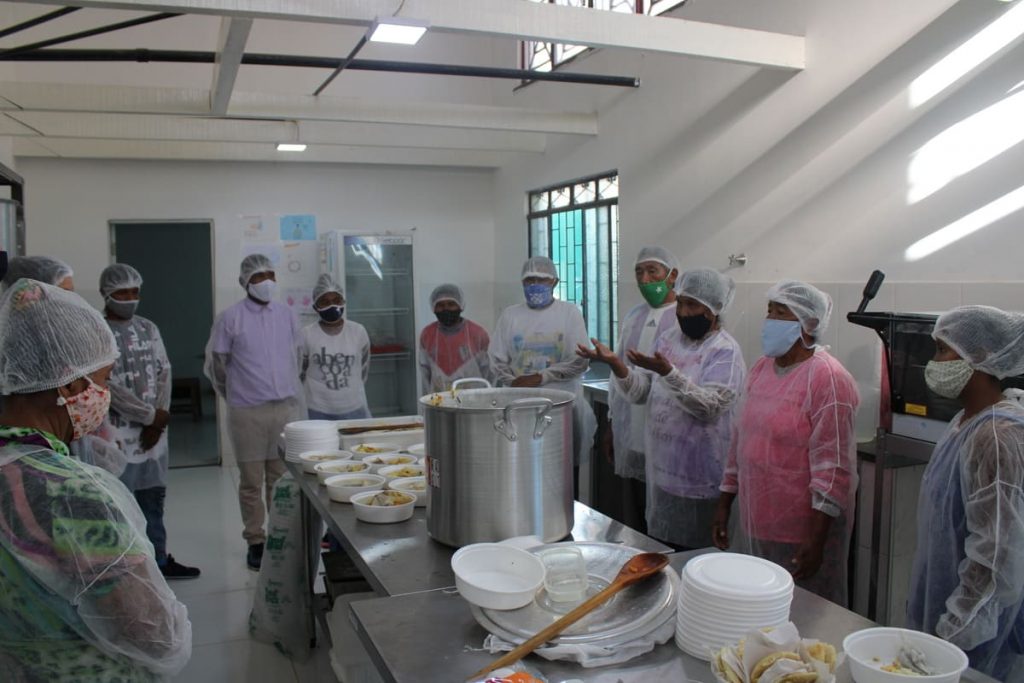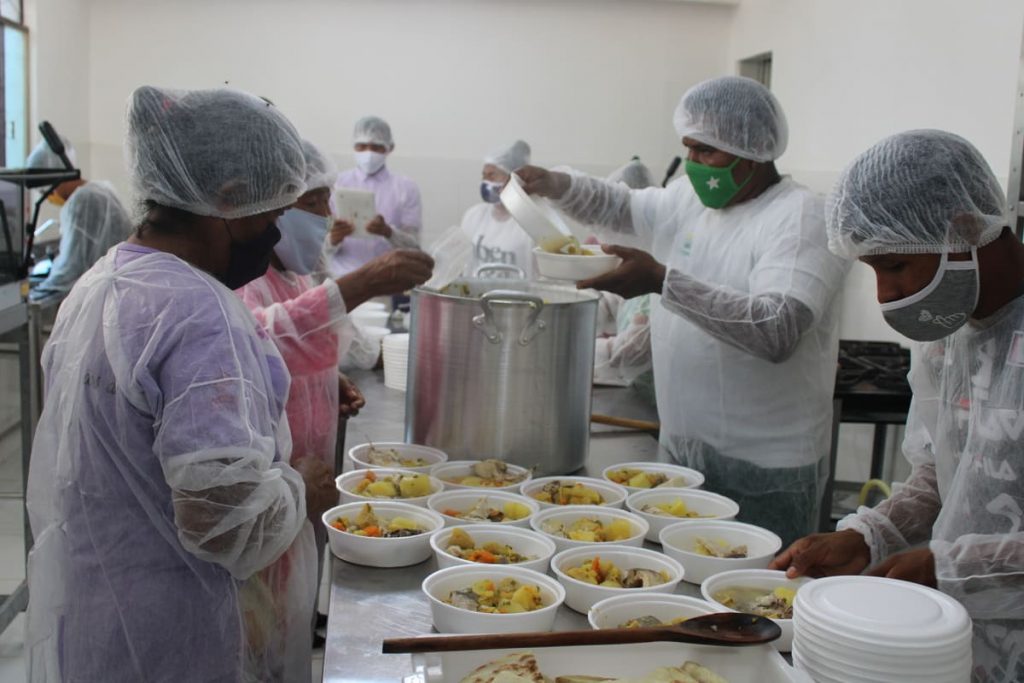Bread, one of the most necessary human foods. And when the process of transforming flour into bread involves people that will be the very beneficiaries of this activity, promoting income generation and insertion into the world of work, this activity has a special significance. It is even more valued when these alchemists are Venezuelan indigenous refugees, who live in the shelters in Roraima, under the management of the Fraternity – International Humanitarian Federation (FIHF) and its partners.
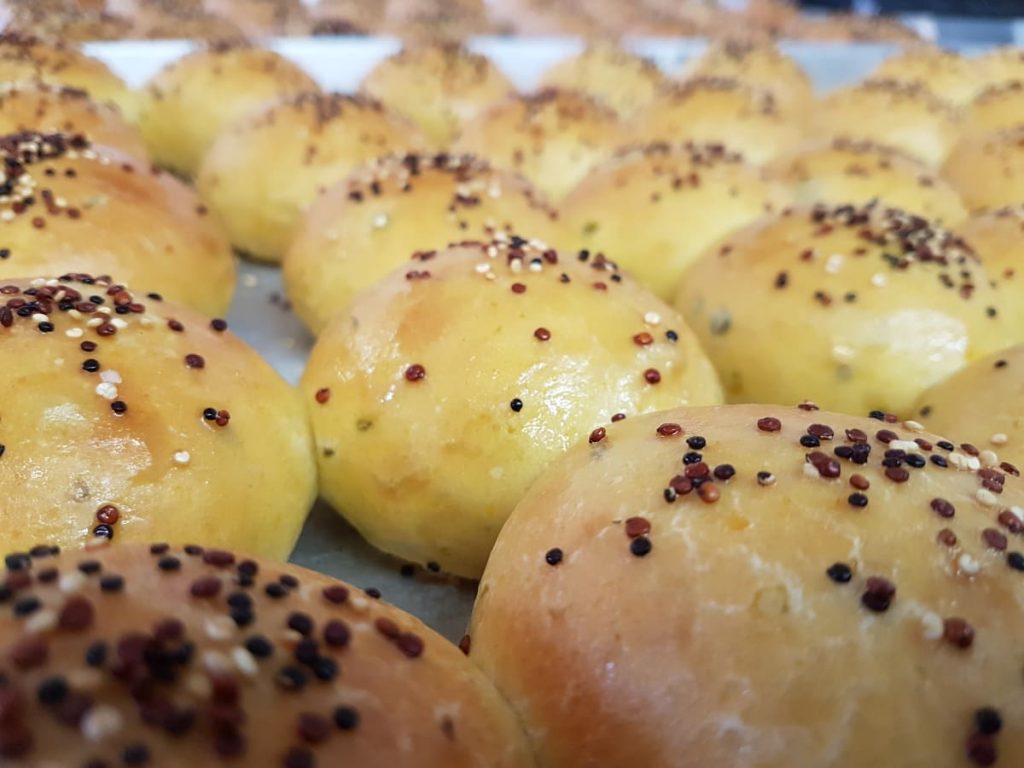
To encompass this proposal, the project of community bread shops in the shelters was created. Still not inaugurated, the first bread shop, set up in Jardim Floresta, is already functioning as a training center. The manager of the Lasting Solutions Sector of the Humanitarian Fraternity (FIHF), Imer de Mirna, tells us that the bread shop is being equipped through donations from the Pan-American Development Foundation (PADF).
The first activity in the bread shop, where there used to be an industrial kitchen, was the practical training of the attendees to the course on Basic Breadmaking, done by the Senac, intended for ten indigenous members of the Pintolândia, Jardim Floresta and Janokoida Shelters, who received certificates at the end of the course. Following, the Course on Good Practices in Handling Food was done, where 20 people were trained.
Due to the demand, a new course on Basic Breadmaking will be offered for a group of ten students, and will be done wholly in the bread shop. And according to the qualifications of the students, there will be other courses such as Intermediate and/or Advanced Breadmaking.
After this period of training, the collective bread shop will open its doors to sell products both to the residents of the shelters and the surrounding community. “Not only bread, but also confectionary items,” is what Imer envisions, who sees the professional training of those involved as a means to generate income based on the recovery of the dignity and empowerment of those people.
The project
For the purpose of finding lasting solutions for the growing demand of Venezuelan indigenous refugees, who since 2016 have been living in shelters in the city of Boa Vista, Roraima, the Humanitarian Fraternity (FIHF), its partners and the community itself being assisted, have developed appropriate strategies that promote the placing of those people in the job market.
The installation of community bread shops is an authentic desire of the involved communities. These are one of the mechanisms to foster the entrepreneurship and creativity of these individuals, as well as promoting autonomy and increasing self-worth, for they will be their own agents in the process, participating in all the stages – sharing in the process from the professional training to the management of the business.
“Also a premise of the project is responding to the fundamental right inherent to all human beings: the right to decent work. In this sense, the proposal is based on legal guarantees of equal access to livelihoods and compliance with the requirements of the legislation corresponding to the proposed project. With the commitment and engagement of each individual, directly or indirectly, all the families will benefit,” concludes Imer.

